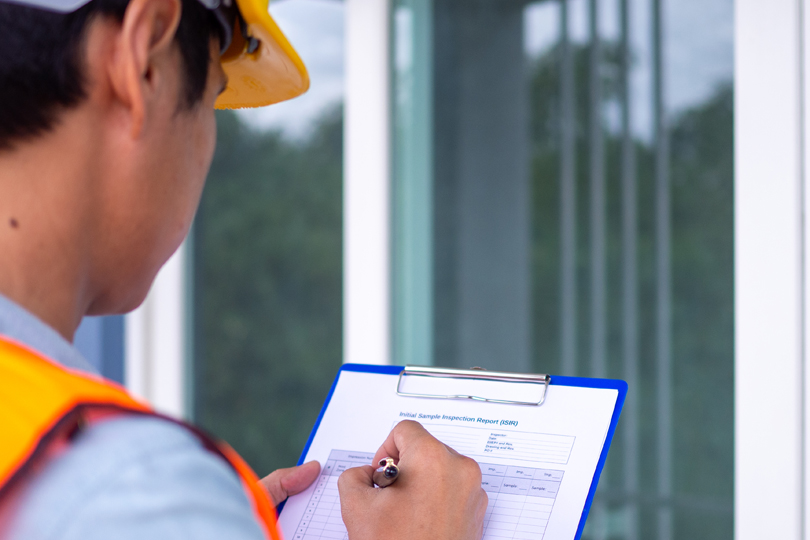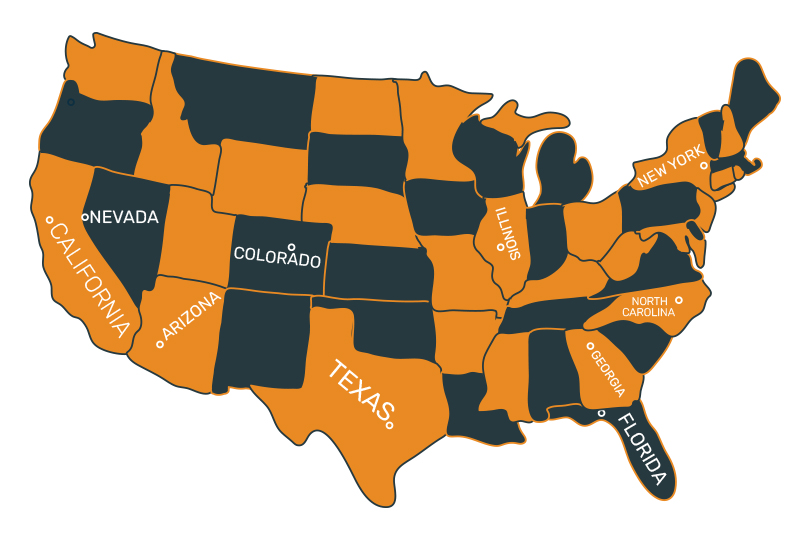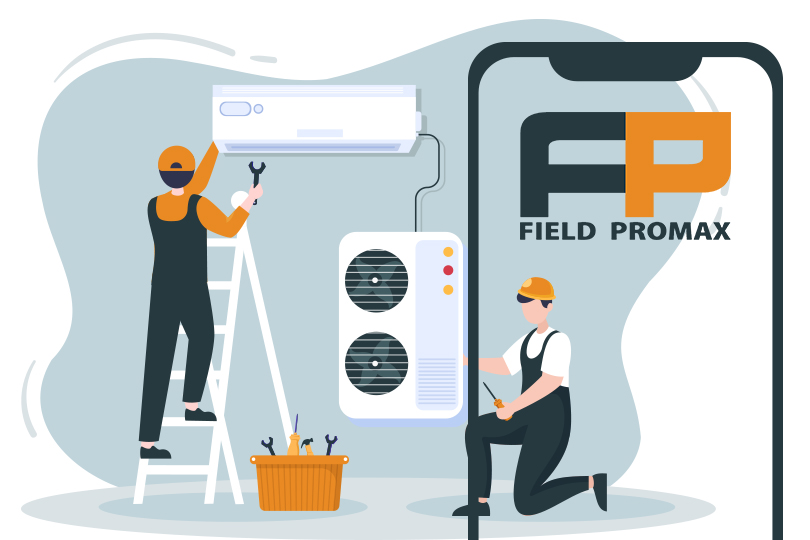Are you aware of the full potential of your HVAC license?
An HVAC technician job is an excellent way to build a successful career. It has an amazing earning opportunity, whether you work for an HVAC company or decide to start your own business. At the same time, it is a highly skilled job. You need proper training, years of experience, and, most importantly, an HVAC license.
It is important to remember that every state in the U.S. is a little different when it comes to HVAC license requirements. This includes differences in issuing authority, exam fees, and screening tests for obtaining the license in each state. Some states do not even require a license, whereas some other states have some really strict rules and regulations for commercial HVAC licenses. Typically, you apply and obtain a license to work in the area you are located in. But that does not necessarily mean you are stuck in that place forever.
Leveraging the option of license reciprocity, you can work in multiple states or move to a completely different place with the same HVAC license. This gives you more flexibility as a professional and increases your chance to expand your business and earn more.
Grow your HVAC business with Field Promax Sign up now to find out its amazing benefits.
At this point, you might be wondering, “Which states can I work in with my HVAC license?”
Well, the answer to this question is going to be long and complex if you are to figure it out on your own. To help you out with this, we have put together a comprehensive guide on HVAC contractors license reciprocity by state.
In this blog, we’ll break down the concept of HVAC license reciprocity in the United States. We’ll explain what it is, why it’s essential, and how it works, state by state, in simple terms. So, if you are planning to relocate or expand your business, keep reading! Find out all about HVAC license requirements and reciprocity. You’ll also find an amazing bonus tip at the end of this blog.
What is HVAC License Reciprocity?
Heating, ventilation, and air conditioning (HVAC) systems play a crucial role in ensuring our homes and workplaces are comfortable year-round. HVAC professionals are in high demand, and many pursue licenses for HVAC to demonstrate their expertise and ensure the safety and efficiency of these systems. But what happens when HVAC professionals need to move across state lines? That’s where HVAC license reciprocity comes into play.
HVAC license reciprocity is a formal agreement among states that allows HVAC professionals who hold a license in one state to have that license recognized and accepted in another state without retaking the full licensure process. This agreement simplifies the process for HVAC professionals who want to work in different states, making it easier for them to transition their careers without jumping through hoops.
In simpler terms, HVAC license reciprocity is when states recognize a license acquired in another state, without requiring the contractor to go through all of the steps to get a new license. Consider the way states treat your driver’s license: You don’t need to prove that you can drive in each state; each state recognizes the driver’s license of every other state.

How HVAC License Reciprocity Works?
On paper, license reciprocity can sound like an open-border policy, but that’s not exactly the case. HVAC technicians licensed in one state cannot take whatever projects they choose in another state, even if it offers reciprocity.
In most cases, an HVAC contractor or technician will still need to obtain a license for the type of work they’ll be performing in the new state. Contractor license reciprocity simply streamlines that process. Instead of producing proof of employment, proof of apprenticeship programs, college transcripts, and other paperwork, the reciprocal state allows the license to fulfill those requirements. However, the main advantage to reciprocity is not having to pay for, take, and wait for the results of another trade examination.
Note that HVAC technicians and contractors will still need to pay the appropriate license fees and meet any bond requirements that might exist within the state.

Why Is HVAC License Reciprocity Important?
HVAC license reciprocity is crucial for several reasons:
- Mobility: It allows HVAC professionals to work across state lines, promoting job mobility and flexibility.
- Streamlined Process: License reciprocity eliminates the need to duplicate licensing requirements, saving time and resources.
- Consumer Safety: It ensures that HVAC professionals are qualified and skilled, maintaining safety and quality standards for consumers.
- Economic Growth: It fosters economic growth by allowing HVAC professionals to expand their services to different regions.
Increase your profitability with Field Promax. Sign up today.

HVAC License Reciprocity by State
Now that you know what HVAC license reciprocity is and why it is important for any HVAC business or independent contractor, let’s have a look at statewise reciprocity.
-
- California
California does not have statewide HVAC license reciprocity. Contractors must apply for a California state contractor’s license, and requirements may vary depending on the classification of the license.
-
- Texas
Texas has limited reciprocity with other states. It typically recognizes licenses from Louisiana and Arkansas but may require HVAC professionals from other states to take an exam to demonstrate their competency.
-
- New York
New York does not have HVAC license reciprocity. To work in New York, HVAC professionals must meet the state’s licensing requirements, which include passing a trade exam.
-
- Florida
Florida has a fairly straightforward reciprocity process. HVAC professionals from states with similar or more stringent requirements can apply for reciprocity. Applicants may need to pass a Florida-specific business and finance exam.
-
- Illinois
Illinois offers reciprocity with states that have licensing requirements comparable to their own. Applicants must provide proof of experience and may need to pass a trade exam.
-
- Arizona
Arizona has reciprocity agreements with several states. Applicants must demonstrate that their home state’s licensing requirements are equivalent to or more stringent than Arizona’s.
-
- Nevada
Nevada offers reciprocity to HVAC professionals from states with comparable or stricter requirements. Applicants may need to pass a Nevada-specific business and law exam.
-
- North Carolina
North Carolina may offer reciprocity to HVAC professionals from states with similar requirements. Applicants should contact the North Carolina State Board of Examiners for more information.
-
- Georgia
Georgia may provide reciprocity to HVAC professionals from states with equivalent or stricter requirements. Applicants must pass the Georgia Business and Law exam.
-
- Colorado
Colorado grants reciprocity to HVAC professionals from states that offer equivalent or more comprehensive licensing requirements. Applicants may need to pass the Colorado Business and Law exam.
Remember that each state may have specific requirements and fees for the reciprocity process. It’s crucial to contact the relevant licensing board or authority in the state you intend to work in for the most accurate and up-to-date information.
States with No Reciprocal Agreements
While most US states offer reciprocity for HVAC technicians, the following states have no reciprocal agreement available for contractors licensed in other states.
- Connecticut
- Hawaii
- Illinois
- Indiana
- Kansas
- Michigan
- Missouri
- New Jersey
- New York
- Rhode Island
- Wisconsin
- Pennsylvania
HVAC Licensing Requirements
The requirements for obtaining an HVAC (Heating, Ventilation, and Air Conditioning) license in the United States can vary from state to state and even within different local jurisdictions. However, there are common elements in HVAC licensing requirements that you can generally expect in most states:
-
- Education and Training
Many states require HVAC professionals to complete a formal HVAC training program or apprenticeship. These programs may be offered by vocational schools, community colleges, trade schools, or through union-sponsored apprenticeships.
-
- Work Experience
HVAC licensing often involves a specific number of years of practical experience working in the field. The required years of experience can vary, but they typically range from 2 to 5 years.
-
- Examination
Most states require HVAC professionals to pass an HVAC licensing exam. The exam typically covers topics such as HVAC systems, electrical systems, refrigeration, and local building codes.
-
- EPA 608 Certification
The Environmental Protection Agency (EPA) requires HVAC professionals who work with refrigerants to obtain the EPA 608 certification. There are four different types of EPA 608 certifications based on the specific types of equipment you will work on: Type I (small appliances), Type II (high-pressure systems), Type III (low-pressure systems), and Universal (which includes all three)
-
- Local Building Codes
Knowledge of local building and safety codes is essential, as HVAC work often involves compliance with these codes. HVAC professionals must ensure that systems are installed and maintained to meet safety and efficiency standards.
-
- Insurance and Bonding
Some states or local jurisdictions may require HVAC professionals to have liability insurance and be bonded as a condition of licensure.
-
- Background Check
Many states conduct a criminal background check as part of the licensing process to ensure that applicants have a clean record.
-
- Licensing Fees
Each state has its own fee structure for HVAC licensing. The fees cover the application process, examinations, and renewals.
Keep in mind that HVAC licensing requirements and regulations can change over time, so it’s essential to check with the relevant state or local licensing board for the most up-to-date information. Additionally, some states have reciprocity agreements with other states, as mentioned above, which allow HVAC professionals licensed in one state to work in another without completing the full licensure process.

Bonus Tip: Growing Your HVAC Business with Field Promax
As you plan to cross the state line and expand your HVAC business, you need to make a new and updated strategy to handle the additional challenges that are coming your way.
As you expand, you will need more resources. Consequently, it will become even more difficult to manage things and optimize them to leverage their full potential. For example, it is rather achievable to manage and track 3-4 field technicians as they carry out HVAC services on your behalf. But imagine this number going up to 50. It is practically impossible to keep track of every ongoing project or their entire’ schedule manually.
If you want to ensure efficiency in the process and deliver high-quality services, you have to leverage the power of automation. And the easiest way to achieve this is to sign up for an advanced HVAC business software system like Field Promax.
It is essentially a cloud-based field service software solution that is specifically designed for the HVAC industry. It seamlessly streamlines and standardizes the entire workflow, including tasks like scheduling, dispatching, monitoring, time-tracking, reporting, estimating, inventory management, equipment tracking, billing, invoicing, and even payment tracking.
Field Promax also offers an integrated mobile app that helps you access the platform and take control of your business from anywhere. With this cutting-edge digital tool, you can accept work orders, assign technicians, and keep a close eye on the ongoing projects, even if you are in a different state.
Being a completely paperless business solution, Field Promax eliminates the risks of double entry and manual errors. Coupled with the power of automation, it adds more efficiency, transparency, and scalability to your business. As a result, it increases your productivity and profitability. In turn, you can successfully optimize your resources and grow your business.
Field Promax also offers a flexible pricing plan to suit your budget as your business grows. No wonder it is the most popular choice among HVAC companies expanding their business across state lines.
So, if you want the same for your company, you need two things— an HVAC license and a subscription to Field Promax.
For more information contact Field Promax today.






